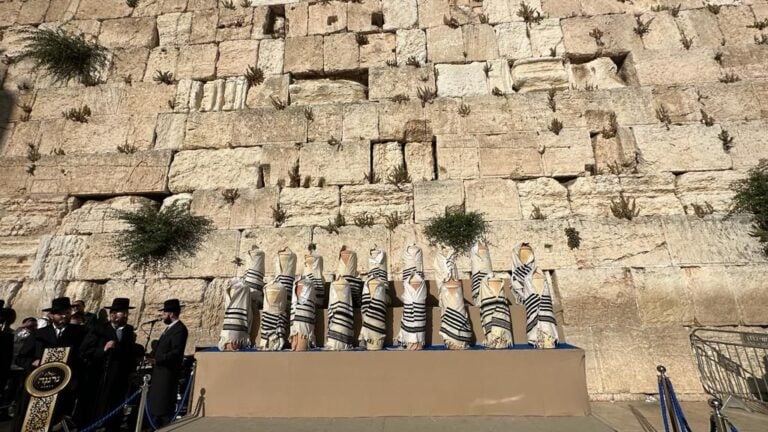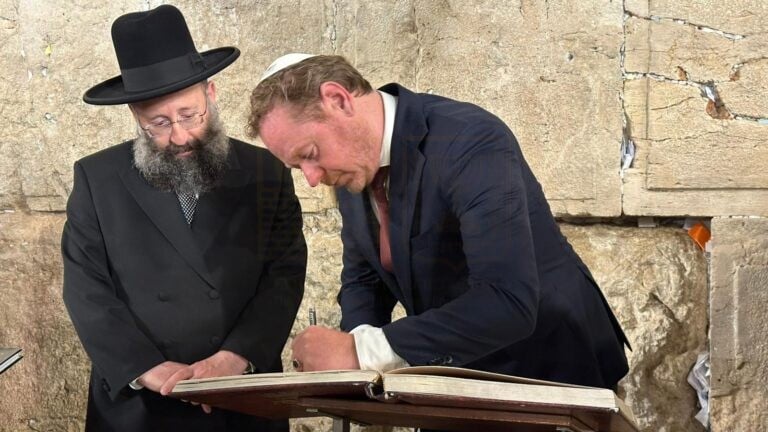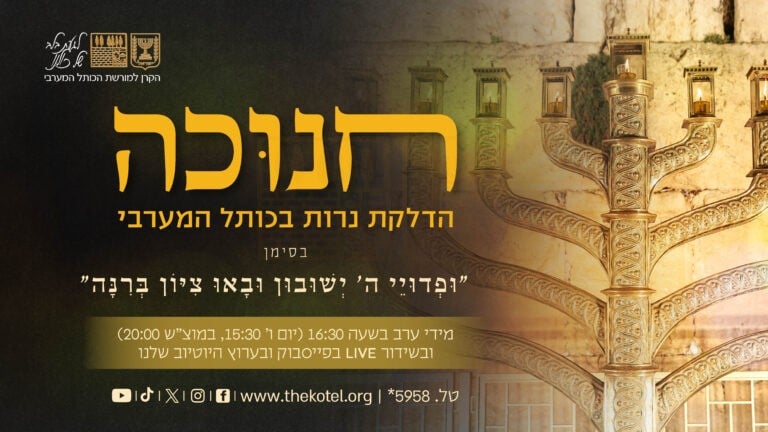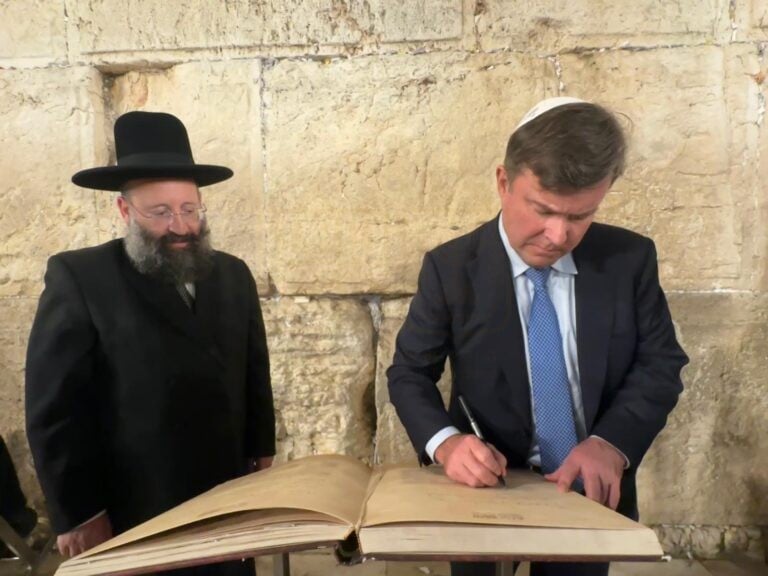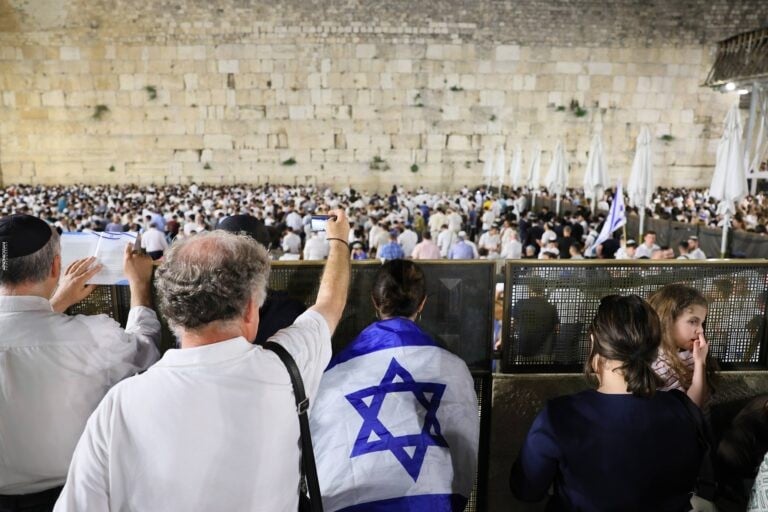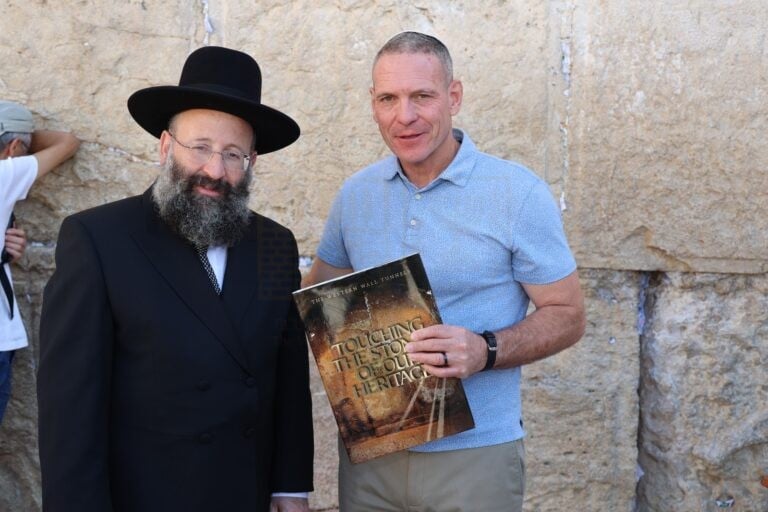|
Getting your Trinity Audio player ready...
|
Sukkot – 5785
Rabbi Shmuel Rabinowitz, Rabbi of the Western Wall and Holy Sites
The festivals of Sukkot and Simchat Torah, now upon us, present a profound spiritual challenge. Sukkot is the only holiday in the Torah where we are commanded to rejoice. On Rosh Hashanah, we stood in awe, accepting the divine judgment. On Yom Kippur, we pleaded for forgiveness, for a year of comfort and redemption. But how can we fulfill the commandment to “rejoice in your festival and be only joyful” when our hearts are heavy with sorrow? How can we celebrate while our brothers and sisters are held captive by a cruel enemy, and our brave soldiers fight with determination to defend our people?
When Moses warned the Israelites before his death of the dangers ahead, he said: “Because you did not serve the Lord your God with joy and gladness of heart.” Moses teaches that joy is not merely a response to external circumstances; it is a profound inner choice. It is the choice to believe in goodness, to hold on to hope, and to live on the bright side of life, even in the darkest moments.
After the destruction of the Second Temple, the sages of Israel debated the essence of the mitzvah of the sukkah. Rabbi Eliezer saw the sukkah as a symbol of the miraculous Clouds of Glory that protected the Israelites in the wilderness. Rabbi Akiva, however, viewed it as representing the makeshift huts that the Israelites built to protect themselves from the harsh desert elements. Rabbi Akiva sought to find divine grace and joy precisely in those moments of hardship and struggle.
Sukkot, Rabbi Akiva teaches, the holiday where we are commanded to rejoice, is also our most vulnerable and exposed festival. Just as the Israelites left their secure homes to dwell in temporary booths, we too leave the safety of our homes for the fragile sukkah, exposed to the elements. Yet, from this awareness of life’s fragility, we choose to rejoice and express gratitude for the blessings we have. Even as we confront the dangers surrounding us, we thank God for every moment of grace.
The mitzvah of the sukkah is one of the few commandments where the Torah emphasizes: “So that your generations may know.” It brings us back to the ancient wellsprings of our heritage, reconnecting us with the foundations of our faith.
Avidan Beit-Yaakov, the father of Captain Roy Beit-Yaakov, of blessed memory, who fell in Gaza, wrote about Sukkot 5785:
“People ask us how we are doing during the holiday. Here is my answer: Sukkot is the holiday that commands us, ‘And you shall rejoice in your festival.’
We will rejoice. Announce it to whoever might replace Nasrallah, to the leaders of Hamas in Gaza, to all our enemies, and to all our so-called ‘friends’ in the world: The Jewish people rejoice. And the Jewish people will continue to rejoice.
This war broke out on Simchat Torah. It is a war over joy.
In the Hebrew calendar, we can never mark the day this war began as one of mourning or sorrow, because it will always be a festival. Our memory will also be one of joy. Our commemoration will include joy.
Our joy is not reckless. It is a joy that does not ignore the hardships and the pain that surround it. It is the joy of a people who know that their mission is to bring morality to the world. That is what we fight for—to increase goodness and to eradicate evil.
Our joy looks to the future. It knows we are on a journey, aware that something is missing, but confident that in the end, we will prevail, bringing goodness into the world, and our joy will be complete.”
This year, more than ever, we need the message of Sukkot. In the face of the terrible destruction that befell us on Simchat Torah, we choose life, rebuilding, and, above all, joy. Not by ignoring the pain, but by recognizing our strength as a people, our unity, and our faith. Confronting an enemy that seeks to break our spirit, we will strengthen ourselves with joy. From this joy, we draw power to support our soldiers, comfort the bereaved families, and most of all, send strength to our brothers and sisters held captive.
May it be God’s will that we merit to rejoice not only out of choice but also through good news, salvation, and comfort from all fronts. May we soon witness the return of God’s presence to Zion with the complete redemption and the rebuilding of our Holy Temple.
